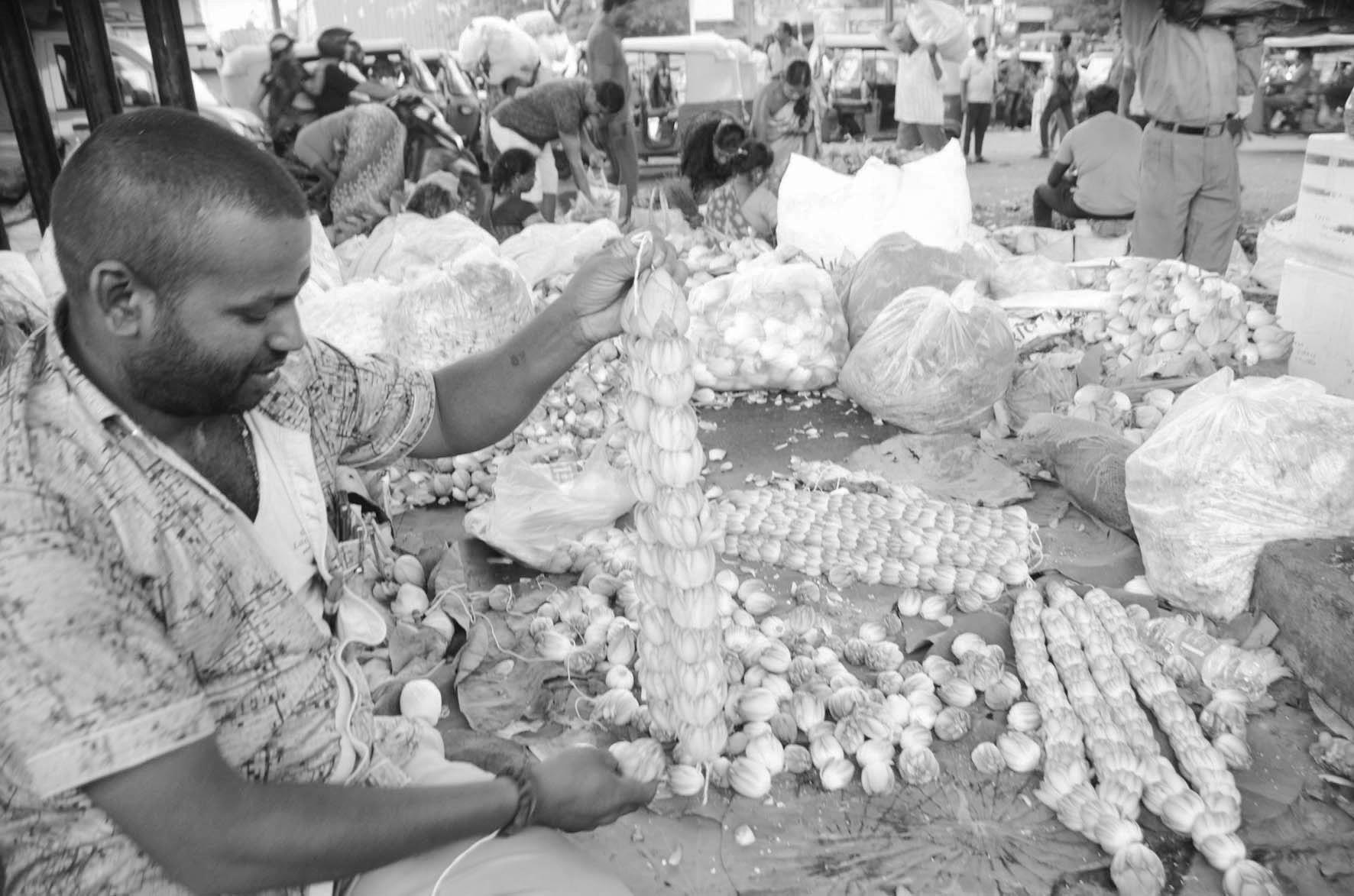
Flower, fruit prices up thanks to rain-related disruption
Bengaluru, NT Bureau: The recent surge in the prices of flowers and fruits has impacted both retailers and consumers. The reason for the hike is that heavy rains have affected the yield of the produce and negatively affected transport.
Districts such as Ramanagara, Hosur in Tamil Nadu, Bagalkote in North Karnataka, which provide much of the yield have been affected by rains, impacting the supply chain. Roses, which were sold at ?10 per stem a few weeks ago now cost ?25. Marigold prices have jumped from ?50 per kg to ?120 for the same quantity.
The prices of Jasmine have gone from ?120 to ?180 per metre. Fruits have also become more expensive, with apple prices increasing from ?150 per kg to ?250. Bananas prices have also appreciated, vendors said. Hawkers at KR Market like Rakesh explain that the rains have destroyed many flowers.
“We are getting fewer supplies and they are more expensive due to increased transport costs (due to hike in fuel prices),” he said. Latha, another vendor, added: “We can't just double the prices because people will stop buying. However, we can't keep our businesses going with these (decreased profit) margins.”
The prices are particularly high in KR Market. Vendors added that the heavy rains have caused significant damage to crops and roads alike.
Fuel dearer as are transported goods
Increased prices of fuel are also a concern as the Karnataka State government increased the sales tax on petrol from 25.92 per cent to 29.84 per cent in June. The sales tax was hiked from 14.34 per cent to 18.44 per cent for diesel.
Petrol price increased Rs 3 and diesel rates went up by Rs 3.5, increasing price of transportation for all manner of goods. Customers who mainly buy flowers as offerings for deities are also unhappy with the increased cost.
Anjali, a customer, said: “I have to cut down on the amount of flowers I buy for daily prayers because of the high prices.”
Deepika, another customer, said: “We have started buying in smaller quantities and are looking for alternative sources, like local vendors on the outskirts, hoping for a better deal.”
 English daily published in Bengaluru & Doha
English daily published in Bengaluru & Doha






